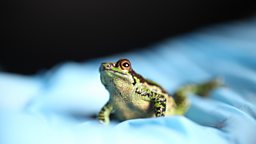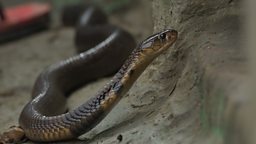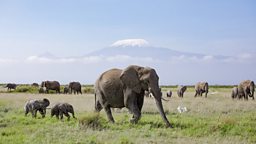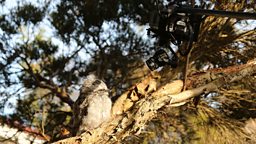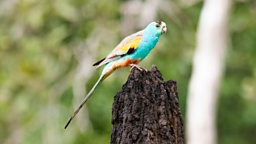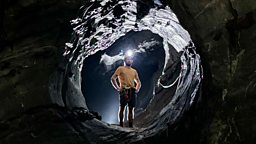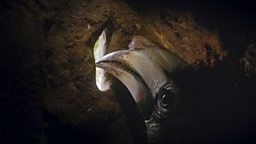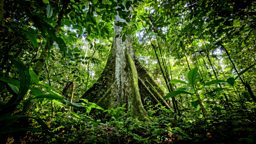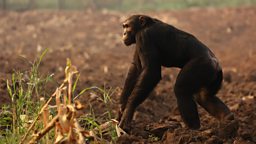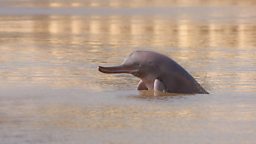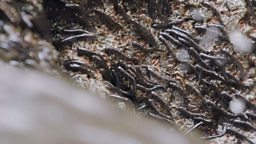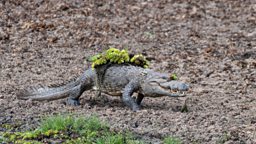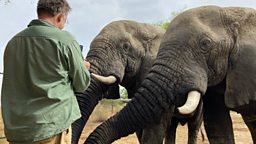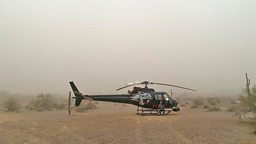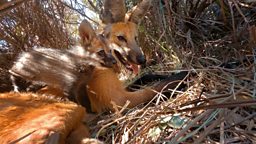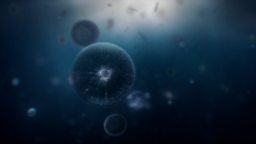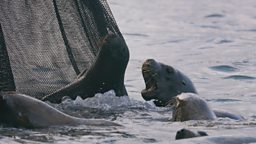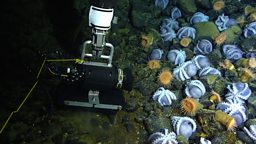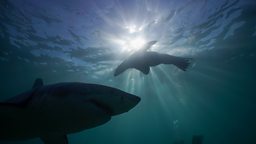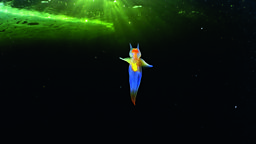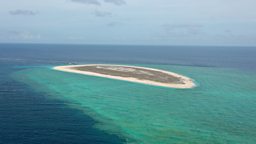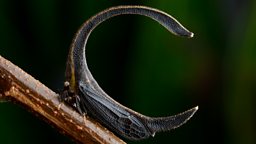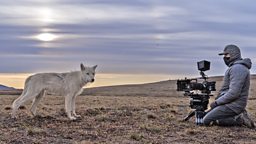Why frogs are so important
By Steve Greenwood, Producer/ Director for Heroes
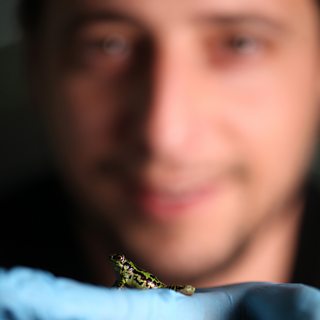
Some people love frogs and toads. Other people have yet to be convinced! But whether you are mad about them or run a mile when you see them, frogs are a vital part of our natural world.
And they are in trouble. According to the . Populations are dwindling and many species haven’t been spotted in years.
They are the most threatened group of animals in the world.
So if you are not a frog lover – why should you care? There are nearly 8000 species of frogs and toads around the world. Does it really matter if a few species go extinct?
Well – there are lots of surprising and important reasons that we need them.
Firstly, there’s the role they play in the ecosystems. They are important predators of many insects, including those insects that live around freshwater like mosquitoes. But frogs are also food for bigger animals. In the rainforests that includes snakes, lizards and birds. Without frogs the whole of the ecosystem would change forever.
Secondly – frogs and toads are an important measuring stick of a healthy environment. Amphibians have permeable skins that can easily absorb nasty chemicals. That makes them very susceptible to pollution. So if frogs are in trouble it is nature’s warning signal that something is wrong in the environment. Just like canaries were to coalmines – frogs are to freshwater.
A third reason is that frogs have the most extraordinary chemicals in their bodies that can be of huge importance to human medicine.
One example is a group called the ‘poison dart’ frogs - so called as indigenous rainforest people once used the poison on the end of their blowdarts. The most dangerous frog of all – the golden poison frog – has enough of the deadly chemical to kill over ten people.
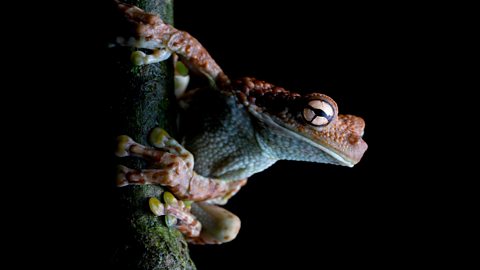
Jaime's guide to frog calls
Frog expert, Jaime Culebras mimics frog calls from the cloud forest of Ecuador.
How is that useful to the rest of us?
Perhaps the next generation of life saving antibiotics will be found in a remote rainforest
Well, scientists have been studying these poisons and found that some of them may be of vital importance in medicine. For instance, the Anthony’s Poison Arrow frog has a chemical called epibatidine. This has been found to be over 200 times more powerful than morphine. Although the chemical itself is so strong that it cannot currently be used in medicine, chemists are looking at the structure of epibatidine and making synthetic analogues which may have very important medical applications.
The strange permeable skins of frogs are also the secret to another vital reason why they are so important. Tropical frogs and toads spend most of their lives in moist and warm places – perfect for the growth of fungi and bacteria on their skin. So, it is not surprising that they have evolved a variety of ways to defend themselves from attack. They secrete a variety of defensive chemicals that bathe their skins to kill off bad bacteria and fungus.
These secretions may well contain the next generation of antibiotics or antifungal medicine.
For humans there is an increasing problem of bacterial resistance to antibiotics. Bugs like MRSA have caused havoc in hospitals and care homes. Perhaps the next generation of life saving antibiotics will be found in a remote rainforest, on the skin of a tiny, endangered frog.
So there are many important and pressing reasons to save the frogs of our world. In the end it may well be frogs that save us!
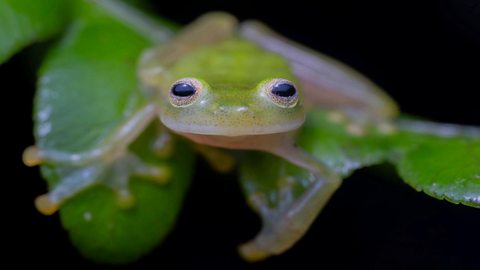
The frog photography of Jaime Culebras
Not only a world-leading frog conservationist, also a world-leading frog photographer.


